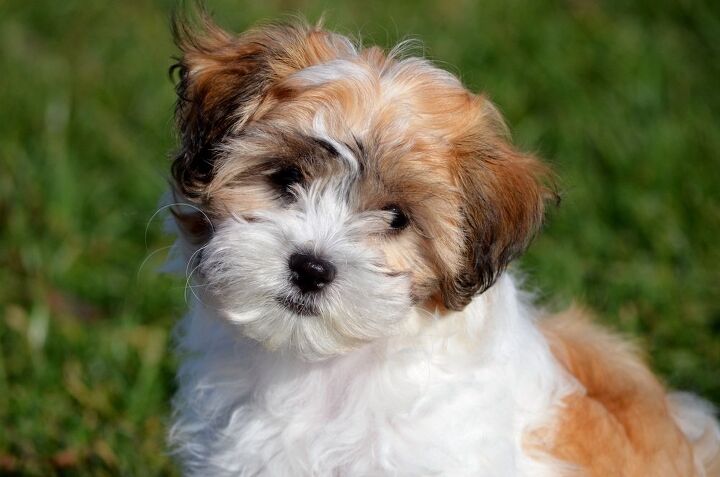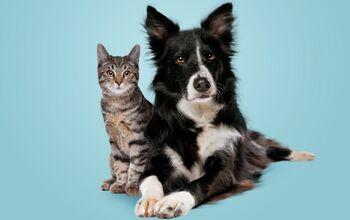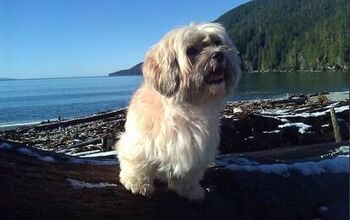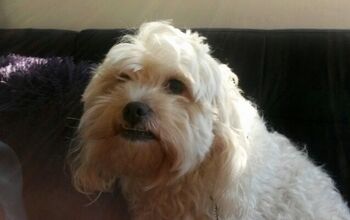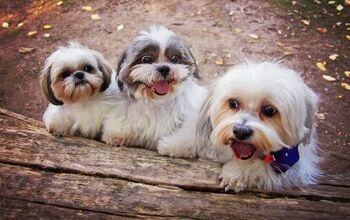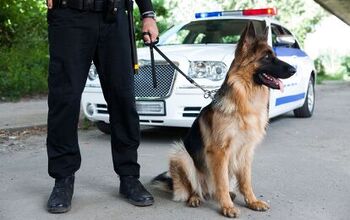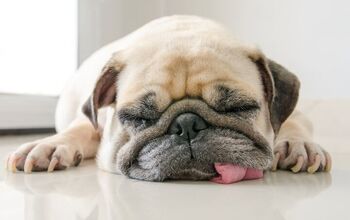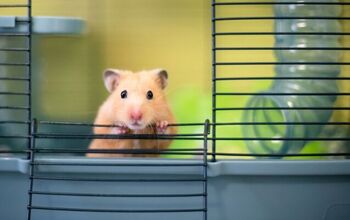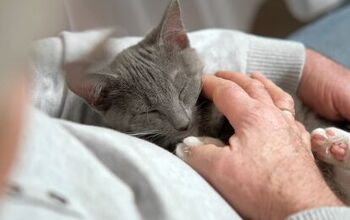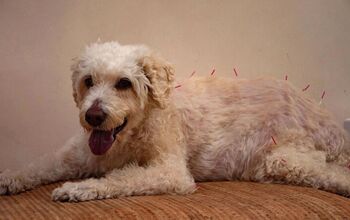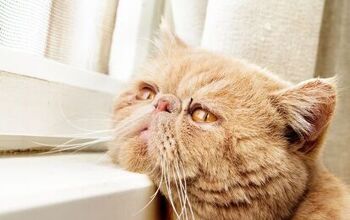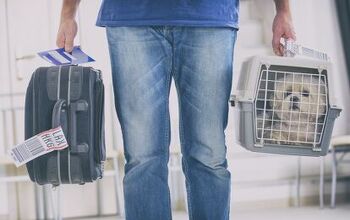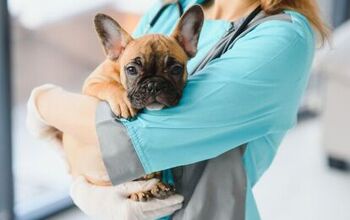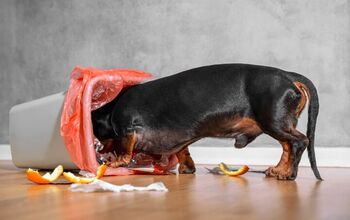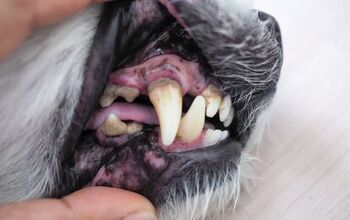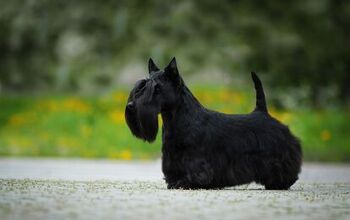Shichon


About Shichon
Shichon Basics
In recent years there has been a drastic increase in the popularity of designer dog breeds. Once considered little more than mutts by snooty purebred enthusiasts, designer dogs are now rightfully considered to be special and lovable pups in their own right. Everyone seems to want a designer dogs these days. And the Shichon is one of the most sought after mixes in the pack! Adorable looks, soft and fluffy fur, and a friendly, sweet nature all make the Shichon attractive to a variety of pet owners. After all, who wouldn’t fall in love with a breed dubbed the Teddy Bear Dog? Only a monster and you aren’t a monster now, are you?
Also known as Zuchon or Tzu Frise, the Shichon is a cross between the Bichon Frise and the Shih Tzu, resulting in a hybrid pup that combines all of the best features of both breeds. The Shichon gives you the small size of the Shih Tzu and the friendly disposition of the Bichon Frise. Why choose between two wonderful dog breeds when you can have the best of both in one lovable pup? You don’t need to choose between your favourite breeds anymore. You can have it all! That’s the main appeal of designer dog breeds, and the Shichon is a perfect representative as the cross truly gives you a perfect blend of two popular breeds.
These hybrid dogs are not demanding. They will adapt to almost any family or living situation. However, like all breeds, the Shichon also has his quirks and special needs. What are these exactly? You’ve come to the right place to find out. Read on to learn all about these designer dogs before welcoming one into your family.
The Shichon gives you the small size of the Shih Tzu and the friendly disposition of the Bichon Frise.
Origin
Designer dogs are a popular global trend, but individual hybrids don’t have well-documented histories. Few people were paying attention to how these dogs came to be so popular and even less were documenting the development. The origins of the Shichon breed cannot be traced back to any one breeder because the crossing of purebred dogs is not a new phenomenon. There have been surprise mixed breed litters for as long as dogs have been breeding, but that’s not what experts would consider a “true” Shichon. The history of the breed starts with people who started intentionally developing it, with a clear goal for the future. And, since no one has stepped out to claim that they first created the Shih Tzu and Bichon Frise mix with the idea to make a fluffy family companion, there’s no way to know the origin of the breed itself. The Sichon remains a bit of a mystery, but thankfully even if we don’t know exactly where these pups came from, we do know that they are lovable and loyal companions. That’s all that matters.
That said, it’s safe to assume that the Shichon shares the origin story with the majority of other designer dogs. The first litter was probably born somewhere in the United States in the last 20 to 30 years. And that’s only if you take designer dogs as your timeframe. If you are looking at all Shih Tzu and Bichon Frise mix in history, it’s certain you could find more of them much earlier than that. But, let’s stop sweating about this breed’s mysterious origins. There’s so much that we do know about them that is necessary to explore.
Pedigree
The Shichon is a 50/50 hybrid of the Brichon Frise and the Shih Tzu. This is a first generation hybrid, with equal parts of both of his purebred parents. However, despite the fact that the parentage is split 50/50, these types of mixes are the most varying ones. Even across one litter, there could be significant differences. Some puppies could take on more traits from one of the breeds, others could be a mix of both. Much like a box of chocolates, you never quite know what you’re going to get from a litter of Shichon pups. Either way, with the many similarities of the two breeds, there’s not that much room for a surprise!
While the first generation Shichons remain the most common ones, there are some F2 Shih Tzu and Bichon Frise mixes as well. Multigenerational crossing is a great way to create a more uniform standard for the breed. This is achieved by breeding Shichons to other unrelated Shichons. Alternatively, to increase the percentage of one parent’s genes, breeders could opt to breed with an unrelated Shih Tzu or Bichon Frise. This is still a Shichon, only with traits that favor one parental breed over the other. Eventually, there will be a standardized Shichon just like every other designer dog breed. However, it will take many years and generations of these pups for that to happen. For now, though, Shichons are considered mixes and not a “real” breed by official dog clubs and organizations, such as the AKC. Their unpredictability, in terms of appearance, makes it impossible to create a breed standard to adhere to, so they are not considered for recognition.
Food/Diet
Luckily, when it comes to feeding your Shichon, it won’t be rocket science – they are not that different from other dogs of their size and characteristics. Like most dog breeds, the Shih Tzu and Bichon Frise mix does well on high-quality dry food for dogs. It should be of premium quality with healthy ingredients. This means that real meat should be the first ingredient, followed by some healthy fats to provide essential fatty acids such as Omega 3s and 6s, complex carbs to replace cheap fillers and add fiber to the formula, as well as all the essential nutrients such as vitamins and minerals needed by dogs to support their overall health. Always avoid cheap kibble that’s full of fillers and low on nutrients, such as formulas laden with artificial ingredients such as colors or preservatives, and ingredients such as corn or soy.
Because the Shichon is a small-breed dog, you should plan to use a dog food formulated for small breeds. These dog foods are designed to meet the high energy needs of small-breed dogs without being too heavy on the calories, and usually have kibble pieces that are smaller in size so they are easier for petite pooches to munch on. Similarly, pay attention to the recommended age group of the formula – some dry dog foods are suited for all life stages, but sometimes the kibble is optimized to meet the requirements of puppies, adults, or seniors specifically, so be sure to get the formula that matches your pet’s age.
As is true with many small dogs, Shichons are prone to obesity so avoid overfeeding. Usually, these dogs don’t require more than a cup of premium kibble per day. Split it into two meals and don’t go overboard with treats to top it off. This little pooch has a big appetite, so he may demand more. However, it’s important not to give into his adorable begging to protect this pup’s longterm health.
As always, if you are in any way concerned about your pup’s diet, feel free to consult with your veterinarian. While dog food manufacturers do provide useful guidelines for servings, all dogs are different and have their own personal needs. Only your vet is qualified to determine the specific needs of your pup. So never be afraid to ask about this sort of thing. It’s why you have a vet, after all!
The Shichon dog breed is intelligent and has the capacity to do well with training.
Training
The Shichon dog breed is intelligent and has the capacity to do well with training. Unfortunately, like many small breeds, these dogs are a little tricky to train (especially when it comes to housebreaking and you need that!). The reason for this is that small dogs tend to be sassy and stubborn, so if you’re not experienced, they’ll take advantage of that and take over the dominant role – in other words, they’ll try to be the boss of you. The key to training these dogs is to start early when the puppy is still young and to maintain a firm and consistent hand in training. You should be assertive and the alpha in the relationship, but never resort to yelling, punishment, or similar behaviors, as it is both counterproductive and cruel. It is important to maintain your patience when training as these dogs do not respond well to anger. Always focus on positive reinforcement and reward based training – use treats and praise to motivate your puppy to do what you want them to do. Anything less can feel closer to abuse and won’t do your pooch any good. As long as you are consistent and reward your Shichon for good behavior, you shouldn’t have too much trouble with training. Socialization is also important, particularly when the dog is still young, to make sure he remains friendly around strangers and other dogs. That’s why taking them to obedience school is always a good idea. Not only will it take the pressure off you during training, but school will provide your dog with socialization opportunities that will pay off in the long term.
Weight
The average weight of the Shichon breed is between 10 and 15 lbs. They are generally considered compact ,as they are not too tall either, standing 9 to 11 inches when fully grown. In other words, these are small breed dogs no matter whose parent they take up after (both the Shih Tzu and Bichon Frise have similar weight and height), so they make a marvelous choice for apartment dwellers as they won’t need a big backyard to thrive in their home.
Temperament/Behavior
The Shichon is a friendly and affectionate little dog that loves to be around family. They will expect to be included in everything and anything you do, and will dutifully follow you around the home. These dogs are generally good with kids, though you need to be sure that your children know how to handle a small dog properly. They are lively and love to play which makes them a great choice for active families or families with older children. These dogs form strong bonds with their family members and they tend to get along well with other dogs and household pets. In other words, Shichons love to love and be loved. They will light up any home and even put a smile on the face of strangers that they come in contact with. Even more so when you consider that one of their parents is known to be a natural clown with goofy behavior – the Shichon often inherits this trait and is just one silly pooch that’s a joy to be around. Just look at that picture! How could you not fall for one of these adorable pups?! Still, you need to make sure that your pet receives adequate care and attention at an early age. A puppy that isn’t properly socialized or is neglected, won’t develop those desirable traits. Start early, and start smart – that way you will avoid a wary, frightened, and snappy Shichon later on.
Common Health Problems
For the most part, the Shichon is a fairly healthy breed but it is prone to certain health problems. The health problems seen in these dogs are a combination of those seen in the parent breeds, Bichon Frise and Shih Tzu. Some common health problems affecting Shichon dogs include cataracts, hip dysplasia, hypothyroidism, patellar luxation, respiratory problems, and portosystemic shunt. Cataracts that affect the eyes are most possible at an advanced age, where senior doggos can experience these issues with sight. However, hip dysplasia is a common ailment for small breeds and dogs that aren’t too tall. This creates a loose joint at the hip, and can cause pain and affect motion. The condition is inherited, and sadly there is no cure for it. Dogs that are overweight are more prone to hip dysplasia, so it goes to pay special attention to the diet your Shichon is getting. Plenty of exercise, and a healthy lifestyle in general will both help your dog and keep health problems at a minimum.
Life Expectancy
The average life expectancy of the Shichon breed is between 15 and 18 years. This is a common life expectancy for many small dog breeds, and is even above the average in certain cases. This means that a Shichon can become quite the steadfast and affectionate friend for a great part of your life. Of course, this senior age can be best reached with plenty of attention and good care. Don’t forget those vet checkups – they all guarantee a long and happy life.
Exercise Requirements
The Shichon is not an overly active breed but it does require a daily walk to work off its energy. These dogs love to play and active games like fetch can fulfill the breed’s daily exercise requirements. Providing your Shichon with mental and physical stimulation will help to prevent the development of unwanted behaviors. So always keep your dog well exercised. It’s so important for their long term physical and mental health. And don’t forget that exercise on a regular basis is great for staving off those pesky health issues like obesity. Obesity is the number one culprit in hip dysplasia, so regular exercise goes a long way to ensure it does not happen. What is more, an obese doggo can quickly turn into an unhappy doggo, and from there it is just a downward spiral towards lethargy, diabetes, and even bigger issues.
The Shichon is a friendly and affectionate little dog that loves to be around family.
AKC
The Shichon dog breed is not currently recognized by the AKC or the UKC because it is considered a hybrid of two purebred dogs rather than a separate breed. The Shichon is, however, recognized by the International Designer Canine Registry (IDCR), American Canine Hybrid Club (ACHC) Designer Dogs Kennel Club (DDKC) Dog Registry of America, Inc. (DRA), and Designer Breed Registry (DBR). The breed parameters are constantly fine tuned, ensuring that the Shichon – also commonly known as Tzu Frise or Zuchon – meets the standards of a balanced breed with acceptable characteristics.
Coat
The Shichon is often referred to as the “teddy bear dog” due to its cuddly nature and soft, fluffy coat. Oh, and the face has that unmistakably cute “plushie” look! The coat color and appearance of this breed varies slightly depending on breeding but, for the most part, the Shichon has a long, silky coat that may also be curly. As well, they are hypoallergenic. Coat colors may include gray, silver, cream, tan, apricot, red black, chocolate, or any combination of these colors. The breed sheds very little, and some moderate grooming might be required. What’s best, the hypoallergenic properties ensure that even if you have troubles with dog hair, your Shichon won’t be a problem. Also, it’s good to remember that breeders can’t always predict what the litter will look like. The combination between a Bichon Frise and a Shih Tzu can result in a variety of looks and coat colors.
Puppies
Shichon puppies look like little bundles of fluff with all of the cuteness that implies. These puppies are small and cuddly, just like a teddy bear. The average litter size for Shichons is usually between four and five. It is important to start socializing puppies at a young age to make sure they do not develop aggression toward other dogs. The care that you put into raising these puppies will pay off throughout their adult lives, so take that responsibility seriously early on. You won’t regret it. Like a lot of other small breeds, Shichons can also have a lot of character and that “huge dog” temperament. If not properly socialized, they can become snappy towards strangers and other dogs, and that’s not an ideal outcome. Make sure you give them a lot of chances to socialize early on, and you will guarantee a friendlier adulthood.
Photo credit: Laura Cruise/Shutterstock; KevinKlimaPhoto/Shutterstock; Rob Fuller/Shutterstock

Kate Barrington is the loving owner of two cats (Bagel and Munchkin) and a noisy herd of guinea pigs. Having grown up with golden retrievers, Kate has a great deal of experience with dogs but labels herself a lover of all pets. Having received a Bachelor's degree in English, Kate has combined her love for pets and her passion for writing to create her own freelance writing business, specializing in the pet niche.
More by Kate Barrington



